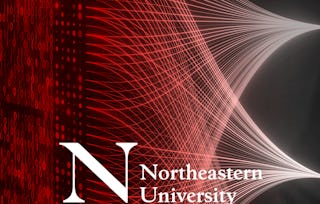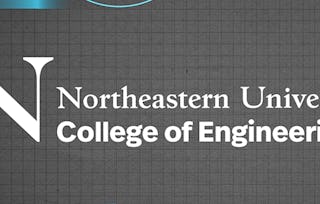This course delves into both the theoretical aspects and practical applications of data mining within the field of engineering. It provides a comprehensive review of the essential fundamentals and central concepts underpinning data mining. Additionally, it introduces pivotal data mining methodologies and offers a guide to executing these techniques through various algorithms. Students will be introduced to a range of data mining techniques, such as data preprocessing, the extraction of association rules, classification, prediction, clustering, and the exploration of complex data, and will implement a capstone project exploring the same. Additionally, we will use case studies to explore the application of data mining across diverse sectors, including but not limited to manufacturing, healthcare, medicine, business, and various service industries.

Machine Learning and Data Analytics Part 1

Machine Learning and Data Analytics Part 1

Instructor: Chinthaka Pathum Dinesh Herath Gedara
Included with
Skills you'll gain
- Statistical Analysis
- Big Data
- Exploratory Data Analysis
- Model Evaluation
- Data Mining
- Data Preprocessing
- Predictive Modeling
- Data Analysis
- Case Studies
- Regression Analysis
- Dimensionality Reduction
- Supervised Learning
- Project Implementation
- Machine Learning Algorithms
- Feature Engineering
- Classification Algorithms
- Skills section collapsed. Showing 10 of 16 skills.
Details to know

Add to your LinkedIn profile
7 assignments
See how employees at top companies are mastering in-demand skills

There are 7 modules in this course
In this module, participants will explore essential data concepts across domains, understanding diverse data types, attributes, and features. They will grasp the fundamental principles, methodologies, and scope of data mining.
What's included
4 videos9 readings1 assignment
This module aims to impart a comprehensive understanding of data concepts, spanning various domains. Participants will learn to differentiate between different data types, attributes, and features. They will explore fundamental principles and methodologies of data mining
What's included
3 videos13 readings1 assignment
Throughout this module, we will jump into the realm of dimensionality reduction, a technique for simplifying complex datasets to facilitate efficient analysis and visualization. By implementing dimensionality reduction methods such as Principal Component Analysis (PCA) and t-Distributed Stochastic Neighbor Embedding (t-SNE), we gain insight into how to effectively reduce the number of features while preserving essential information. We'll also learn to select and apply the most suitable dimensionality reduction techniques based on data types and analytical goals.
What's included
5 videos11 readings1 assignment
In this module, we learn the concept of the Bias-Variance Trade-Off in machine learning. Striving for models that generalize well requires navigating the delicate balance between bias and variance to avoid underfitting and overfitting. Bias prevents the error from oversimplifying a complex problem, while variance quantifies the model's sensitivity to different training data subsets. We will explore strategies to combat bias and variance in developing models that strike the right balance between accuracy and generalization. Transitioning to regression metrics, we will look at practical tools used to measure and evaluate model performance in regression tasks, focusing on metrics such as Root Mean Squared Error (RMSE). Finally, we will navigate the landscape of assessing model performance in binary classification tasks, exploring advanced measures like the F1 score, Matthews Correlation Coefficient (MCC), propensity scores, and the AUC-ROC curve.
What's included
5 videos9 readings1 assignment
In this module, we will continue to explore key learning objectives to empower your understanding and application of essential techniques in machine learning. By mastering foundational classification algorithms such as KNN, LDA, and logistic regression, you'll gain the tools to tackle practical data mining tasks effectively. Through real-world dataset analysis, you'll learn to implement these algorithms with precision and insight, enabling you to extract valuable insights and make informed decisions in various domains. Join us this week to unlock the potential of classification algorithms and elevate your machine learning skills.
What's included
6 videos9 readings1 assignment
Embark on a captivating journey through the world of classification algorithms in this module. We’ll dive into the intricacies of foundational techniques like decision trees, Bayes classifier, ensemble learning, and more as you learn to navigate real-world dataset analysis with confidence. After we uncover the power of the Bayes classifier, we will transition seamlessly into tackling regression tasks with decision trees. Finally, we will dive into the realm of ensemble learning. Over the course of the module, you’ll become equipped with the knowledge and skills to implement these algorithms effectively, propelling your data mining endeavors to new heights.
What's included
4 videos12 readings1 assignment
In this module, we get into essential regression techniques, equipping you with the skills to analyze and model real-world data. Through hands-on lessons, learners will grasp the fundamentals of linear, multiple, and logistic regression, gaining proficiency in implementing these methods on diverse datasets for predictive modeling. Lessons cover topics ranging from understanding linear regression and calculating coefficients to exploring polynomial regression and feature selection. By the end of this module, students will possess a comprehensive understanding of regression techniques, enabling them to make informed decisions and generate valuable insights from data.
What's included
3 videos6 readings1 assignment
Instructor

Offered by
Explore more from Data Analysis
 Status: Preview
Status: PreviewNortheastern University
 Status: Preview
Status: PreviewNortheastern University
 Status: Free Trial
Status: Free Trial Status: Free Trial
Status: Free TrialWesleyan University
Why people choose Coursera for their career

Felipe M.

Jennifer J.

Larry W.

Chaitanya A.

Open new doors with Coursera Plus
Unlimited access to 10,000+ world-class courses, hands-on projects, and job-ready certificate programs - all included in your subscription
Advance your career with an online degree
Earn a degree from world-class universities - 100% online
Join over 3,400 global companies that choose Coursera for Business
Upskill your employees to excel in the digital economy
Frequently asked questions
To access the course materials, assignments and to earn a Certificate, you will need to purchase the Certificate experience when you enroll in a course. You can try a Free Trial instead, or apply for Financial Aid. The course may offer 'Full Course, No Certificate' instead. This option lets you see all course materials, submit required assessments, and get a final grade. This also means that you will not be able to purchase a Certificate experience.
When you purchase a Certificate you get access to all course materials, including graded assignments. Upon completing the course, your electronic Certificate will be added to your Accomplishments page - from there, you can print your Certificate or add it to your LinkedIn profile.
Yes. In select learning programs, you can apply for financial aid or a scholarship if you can’t afford the enrollment fee. If fin aid or scholarship is available for your learning program selection, you’ll find a link to apply on the description page.
More questions
Financial aid available,

